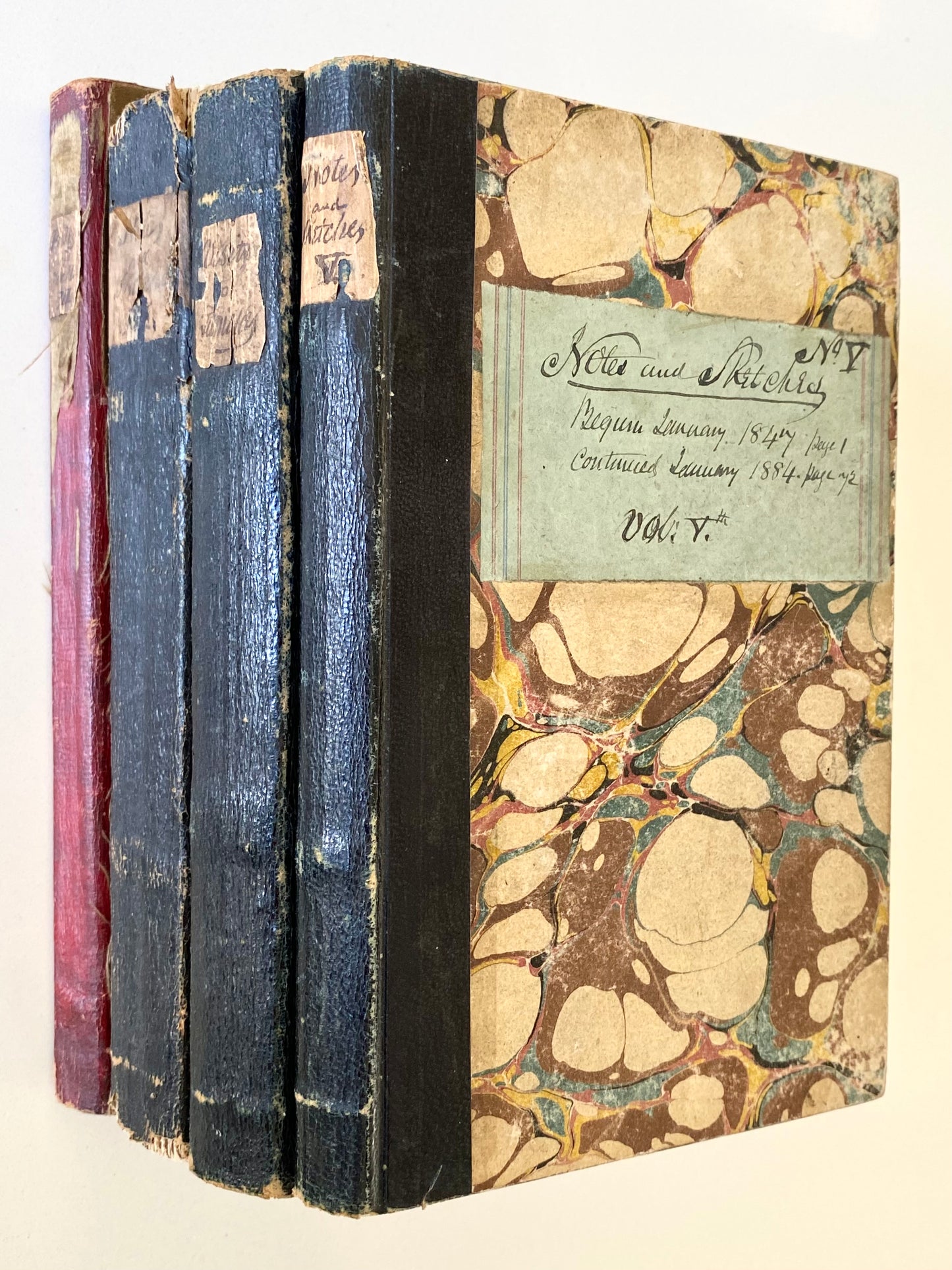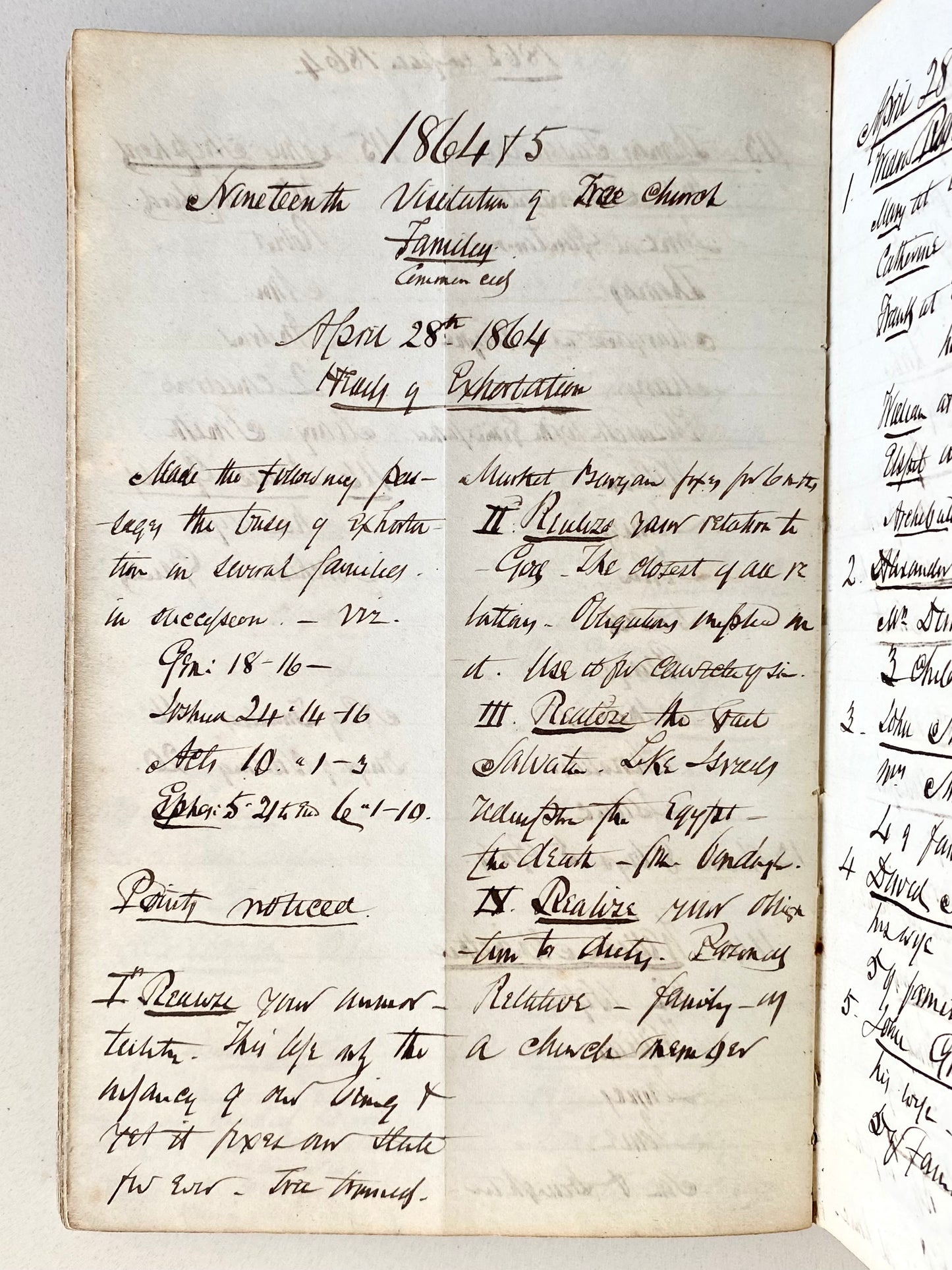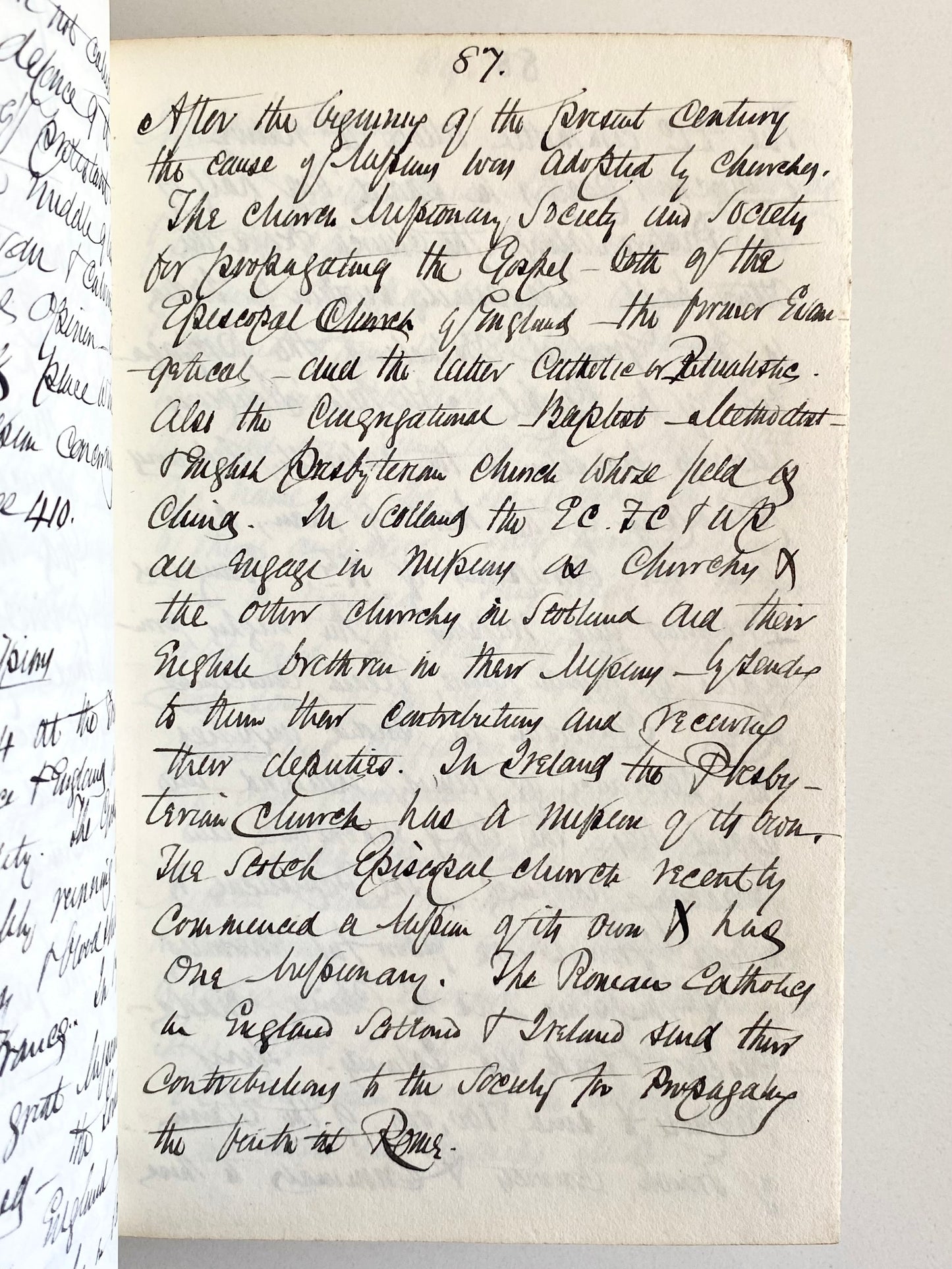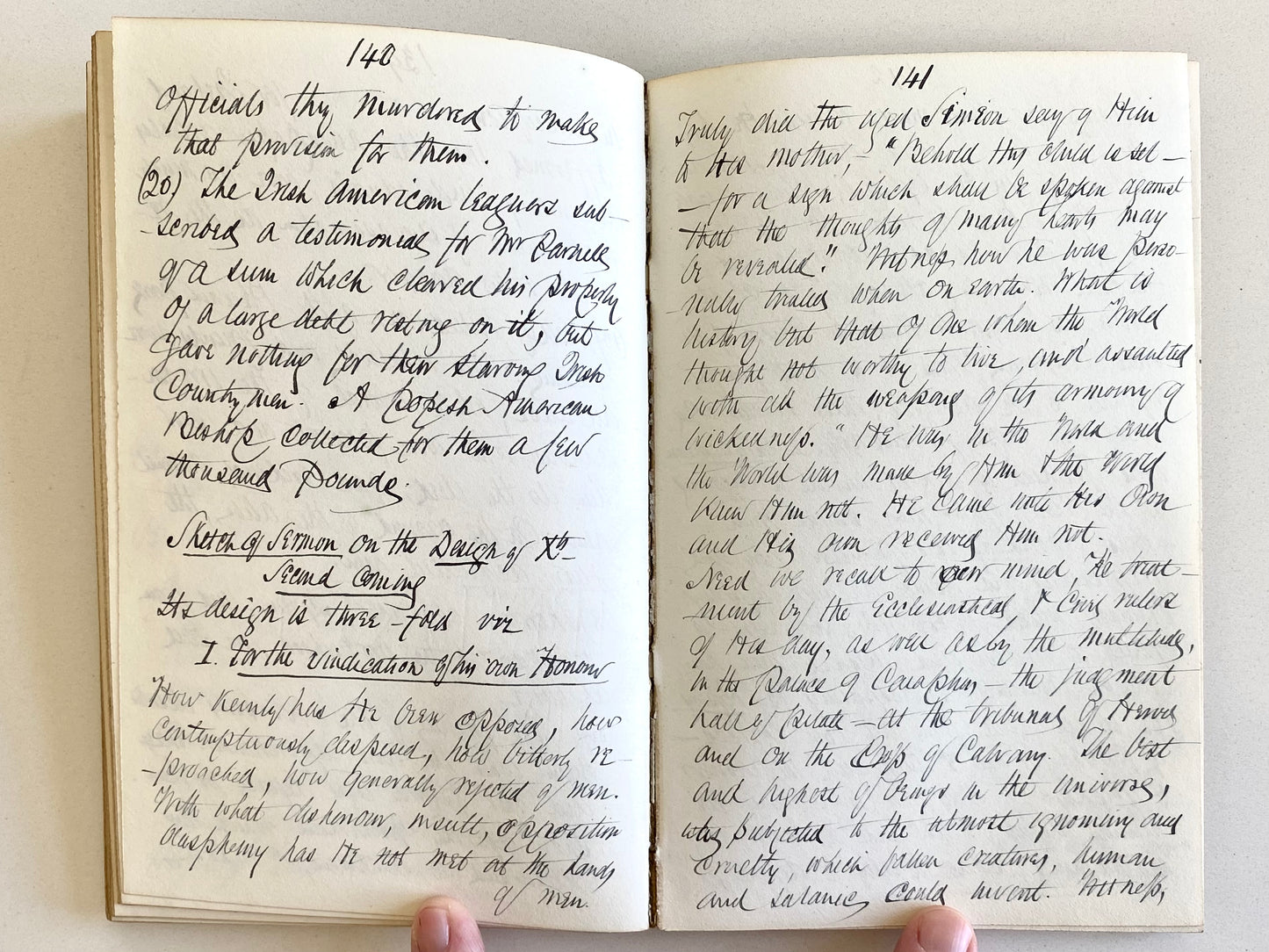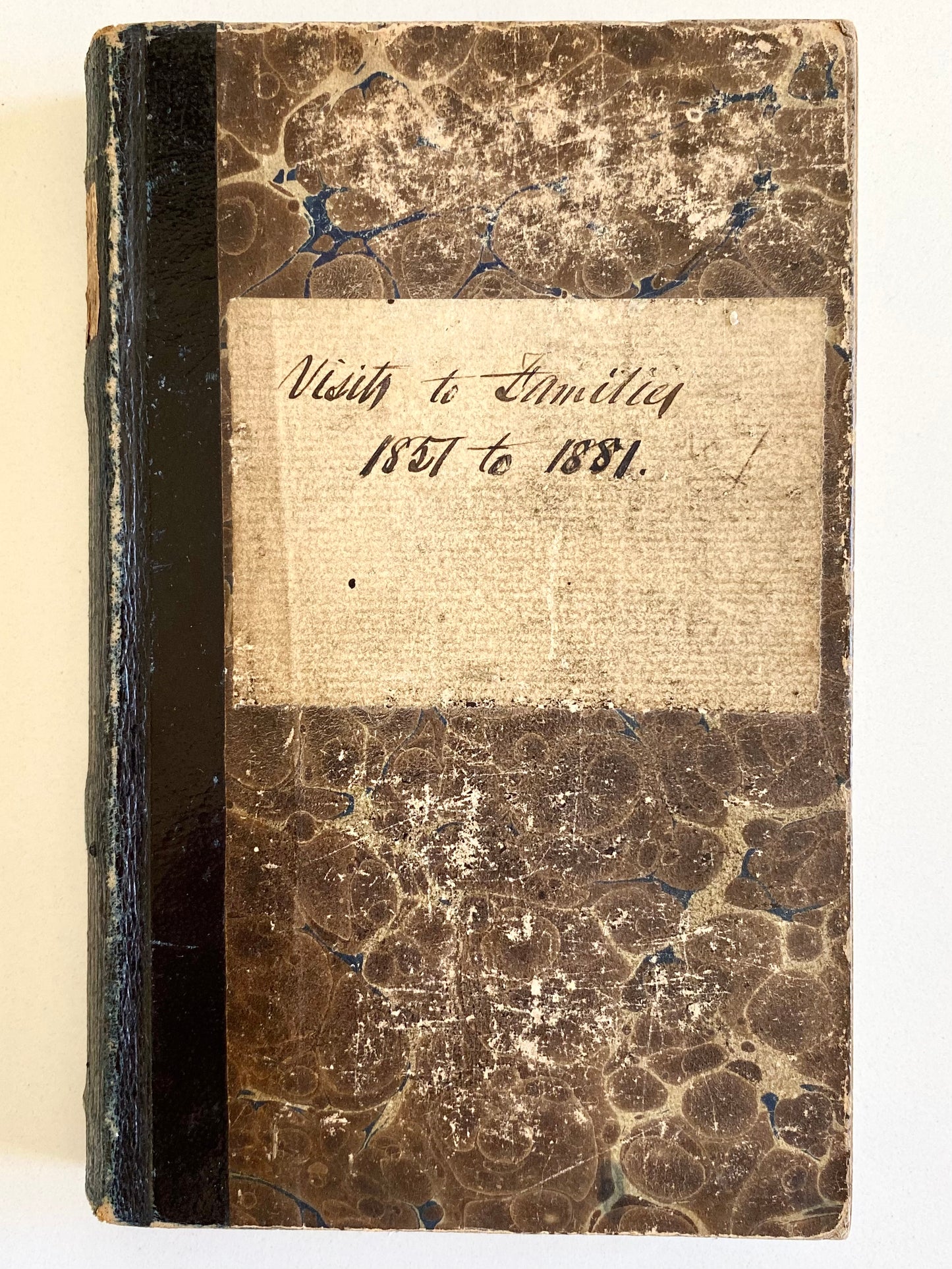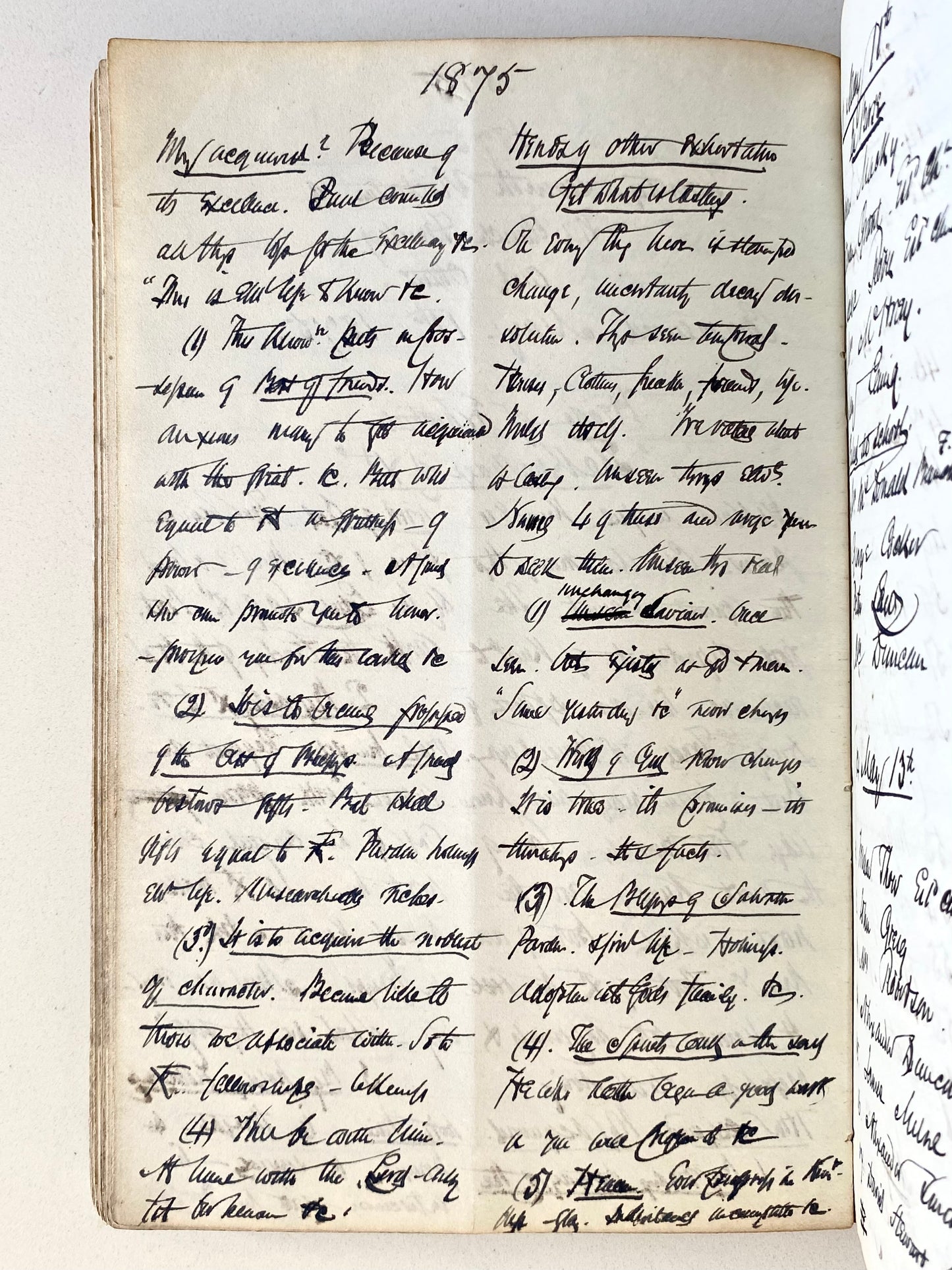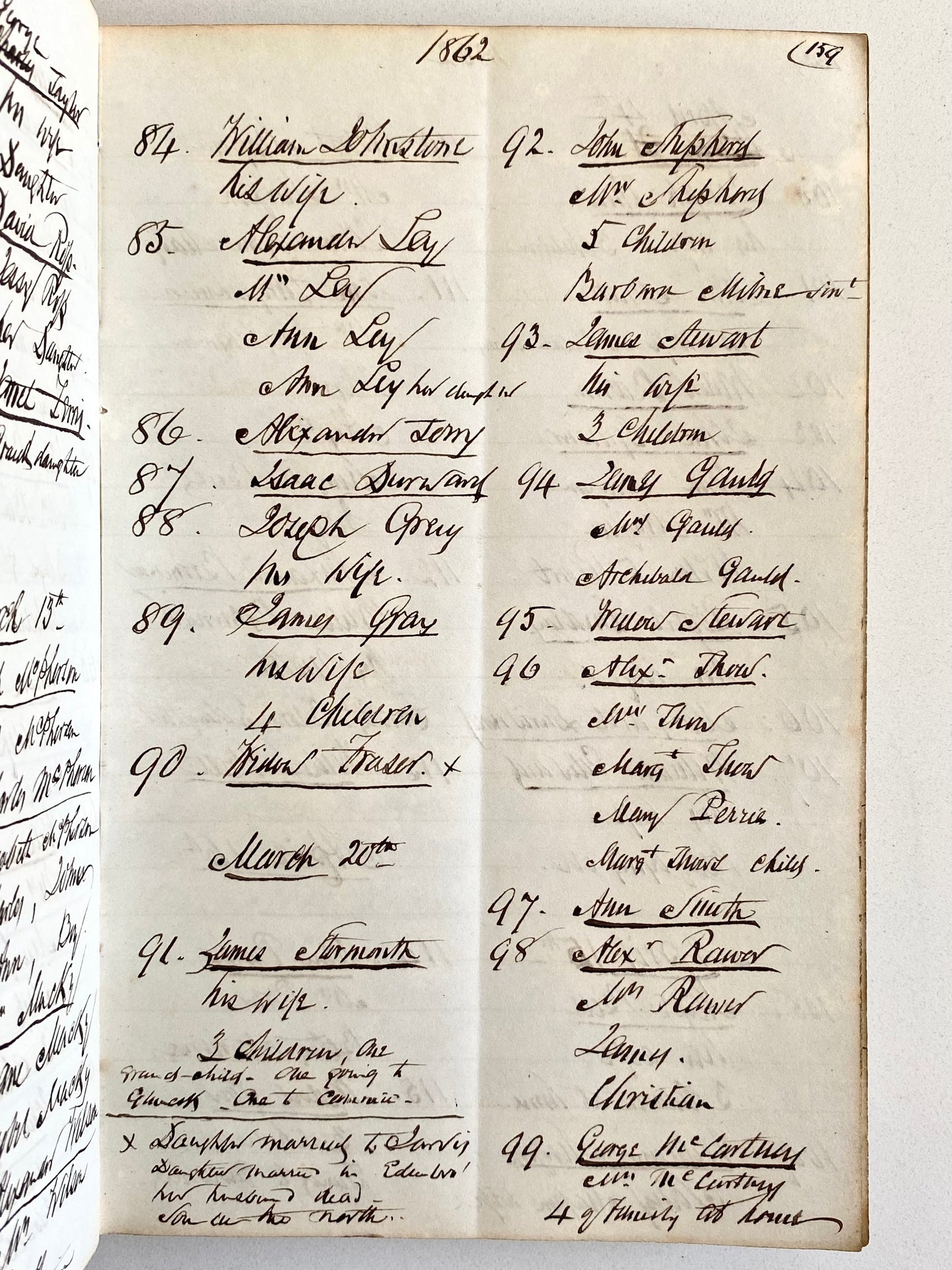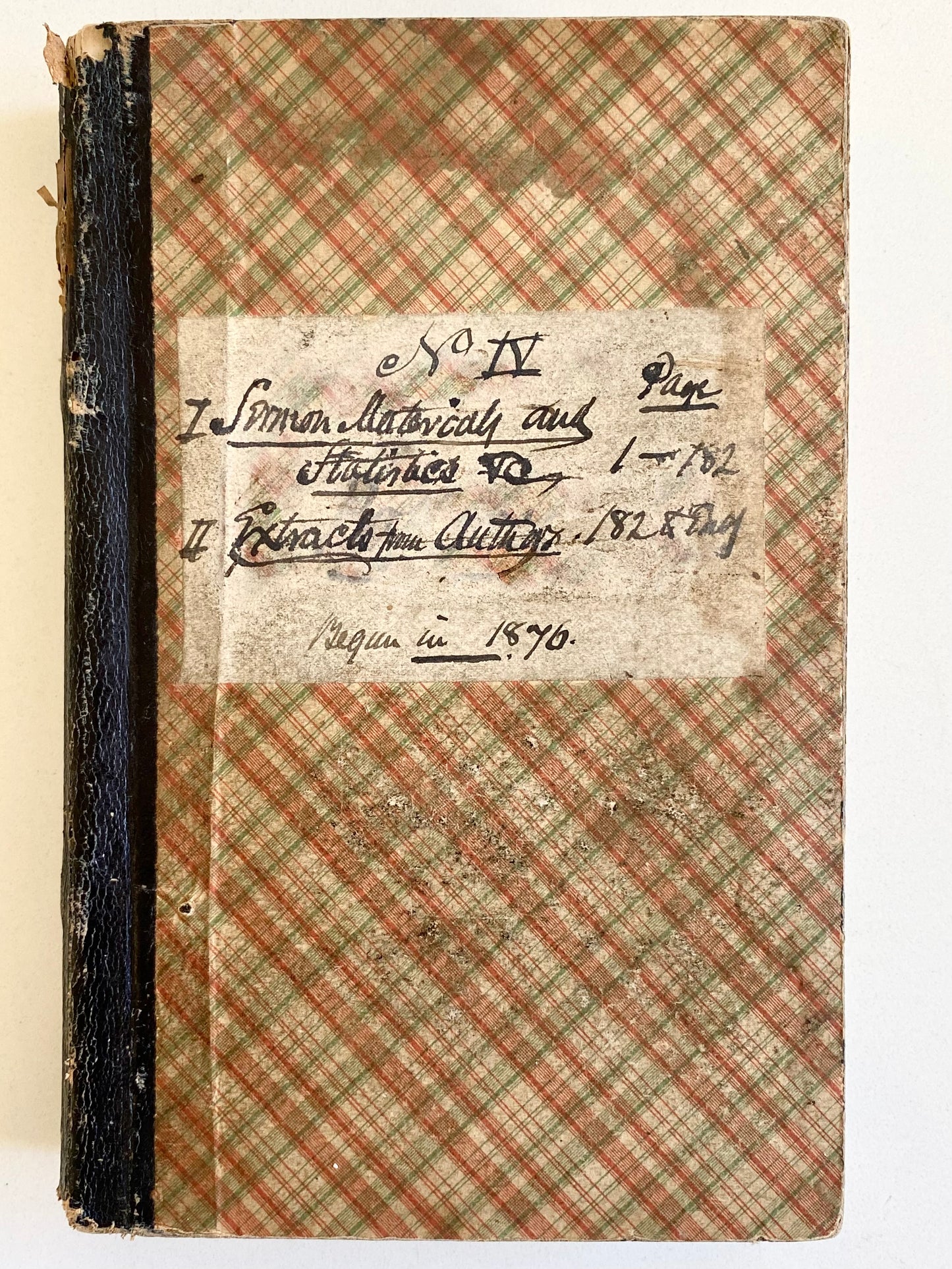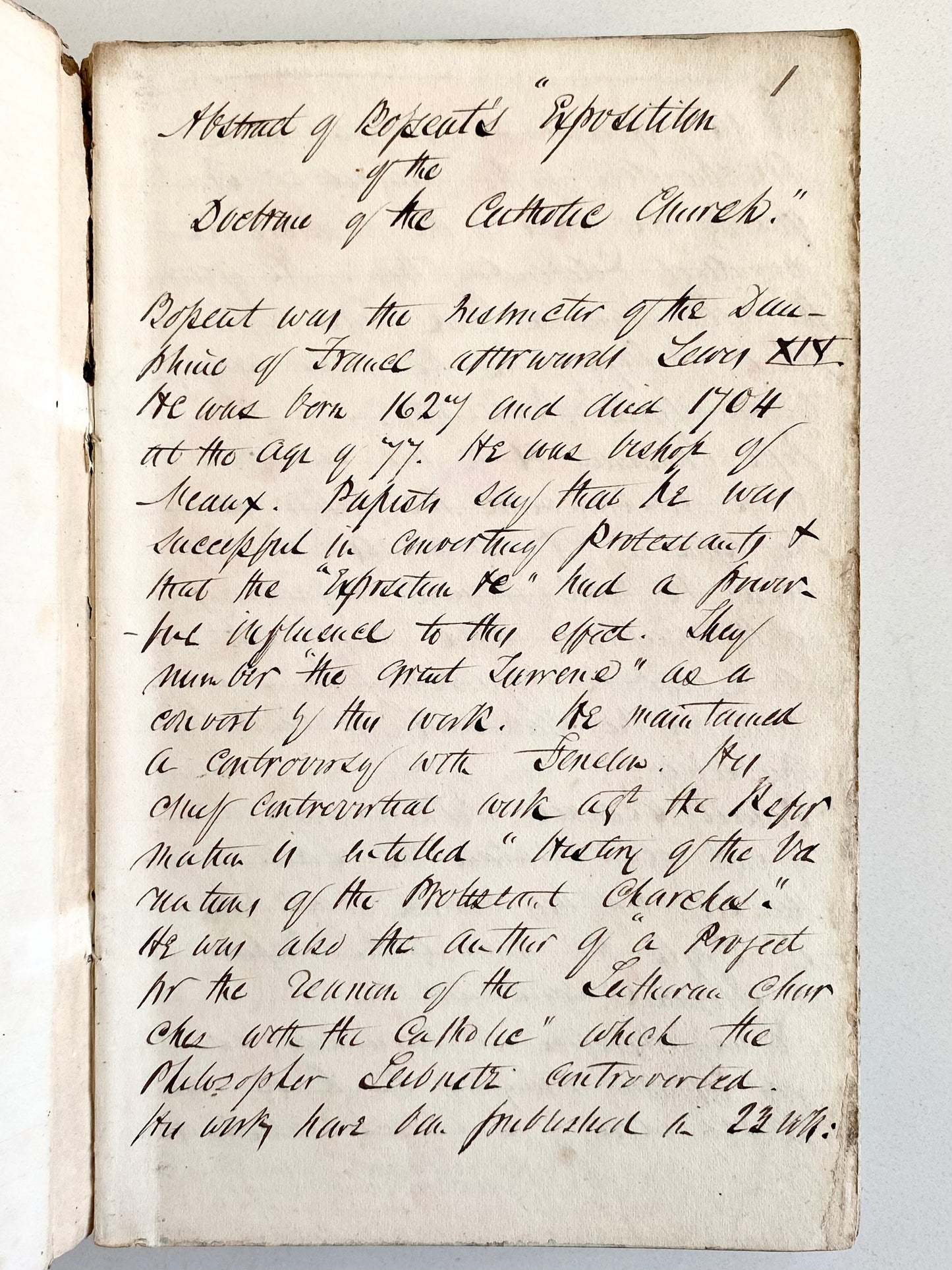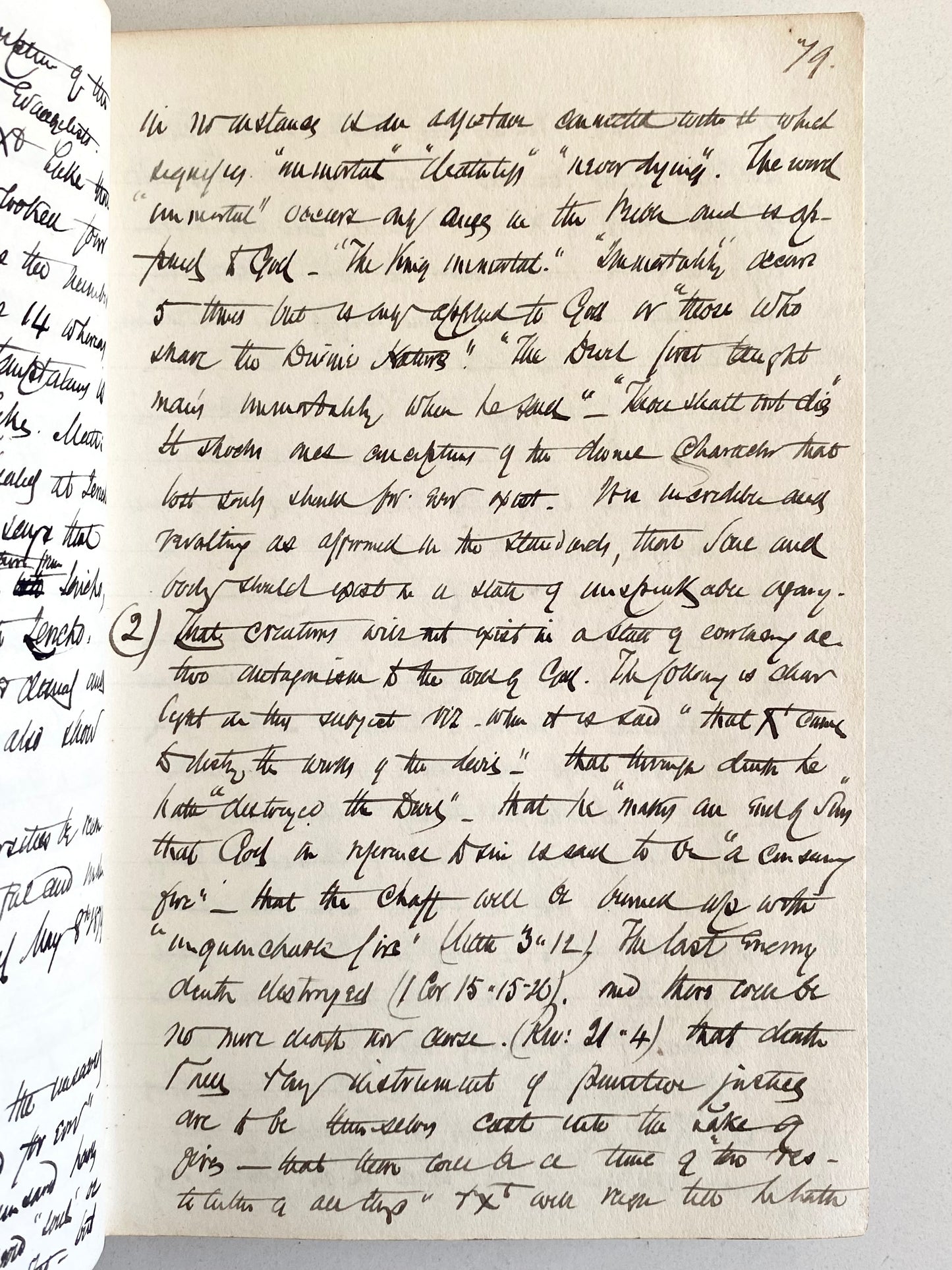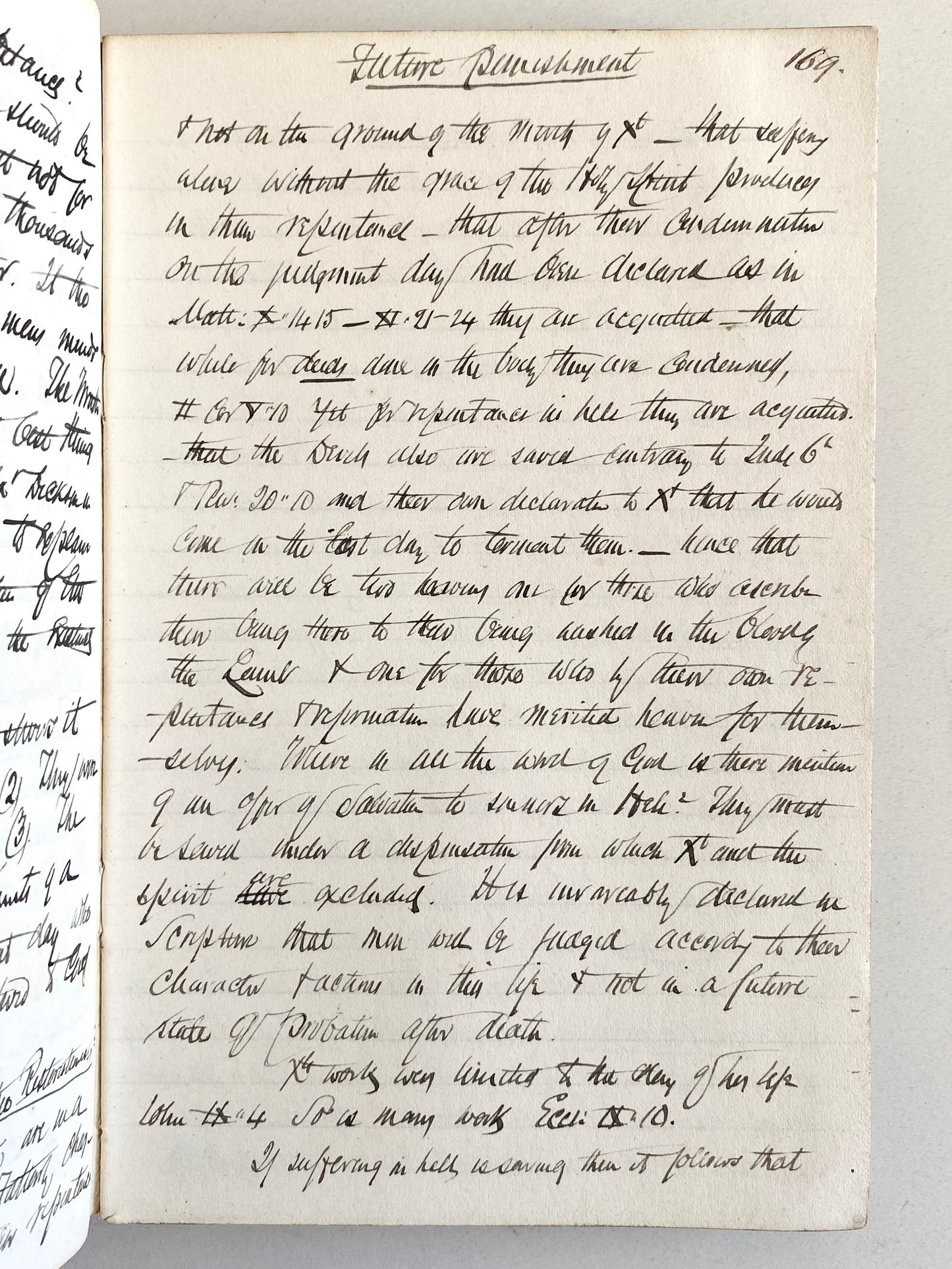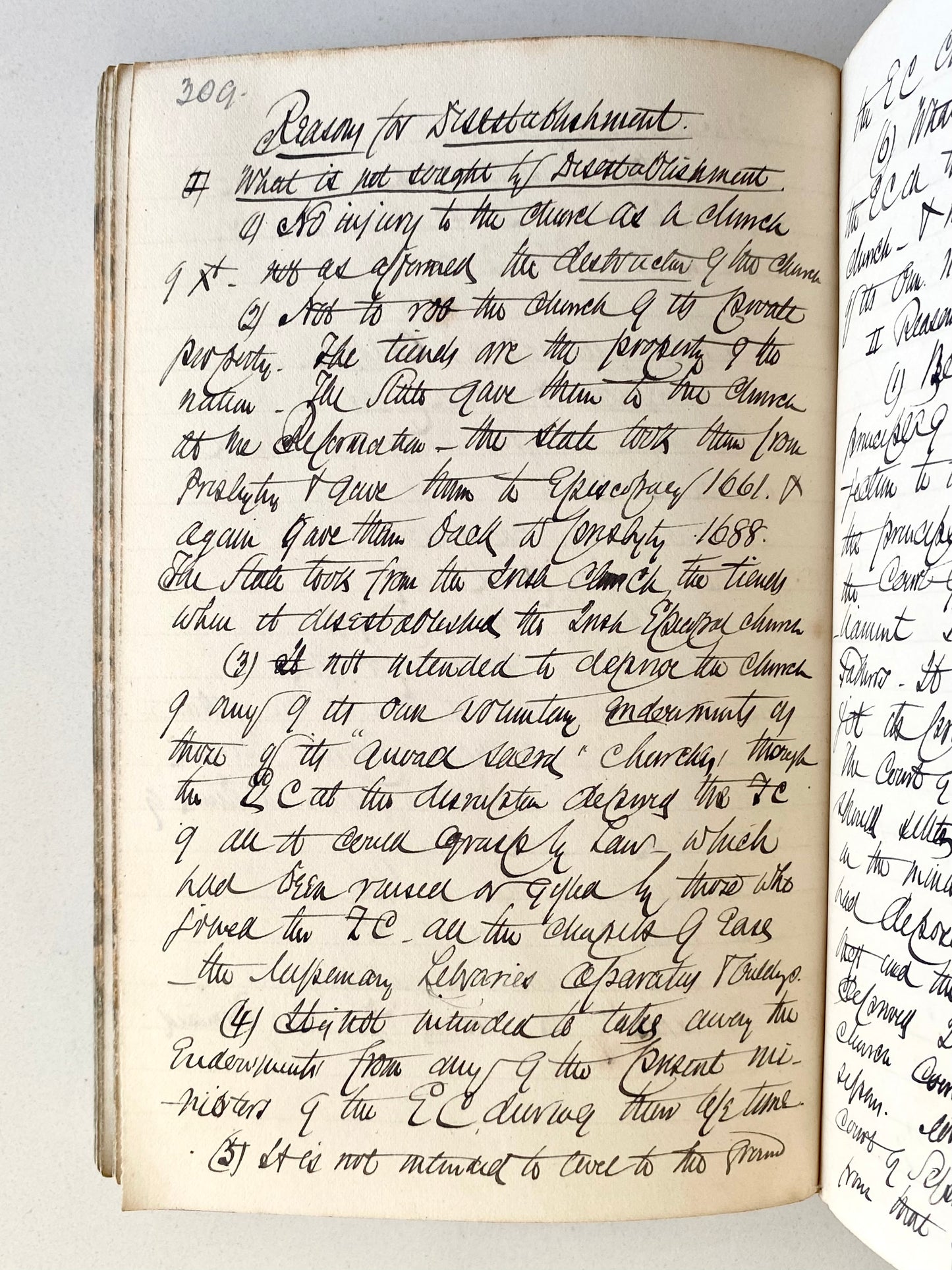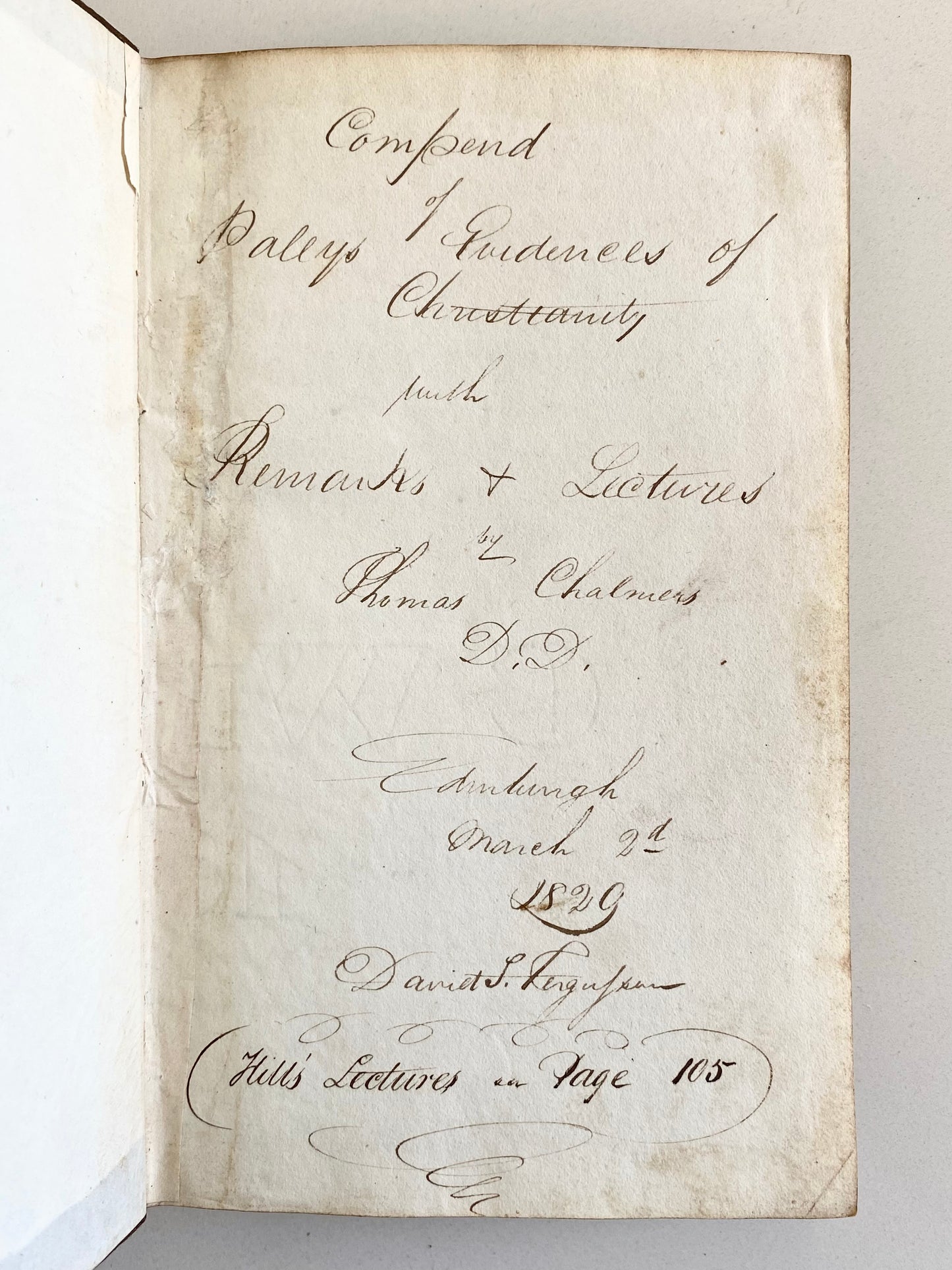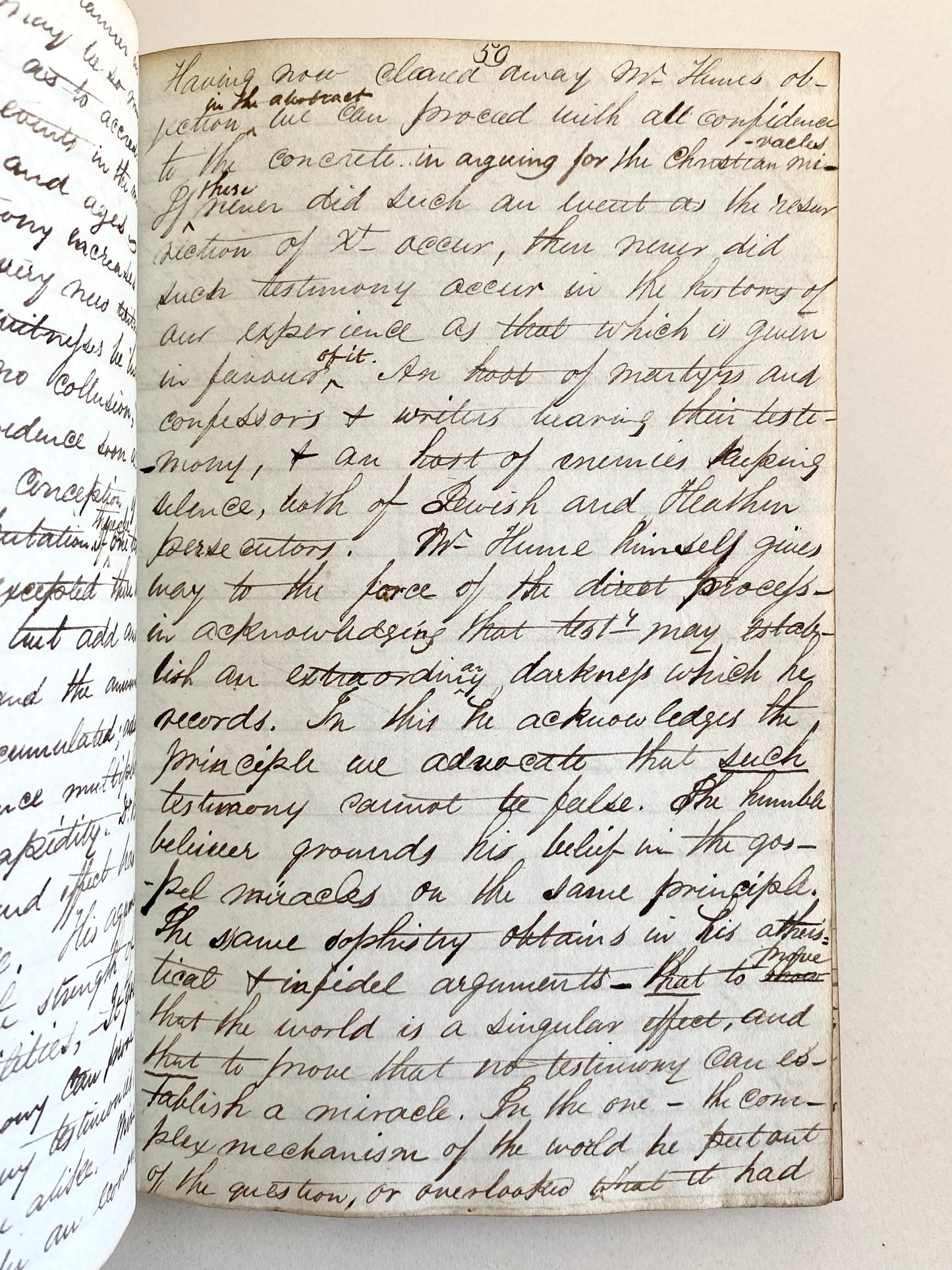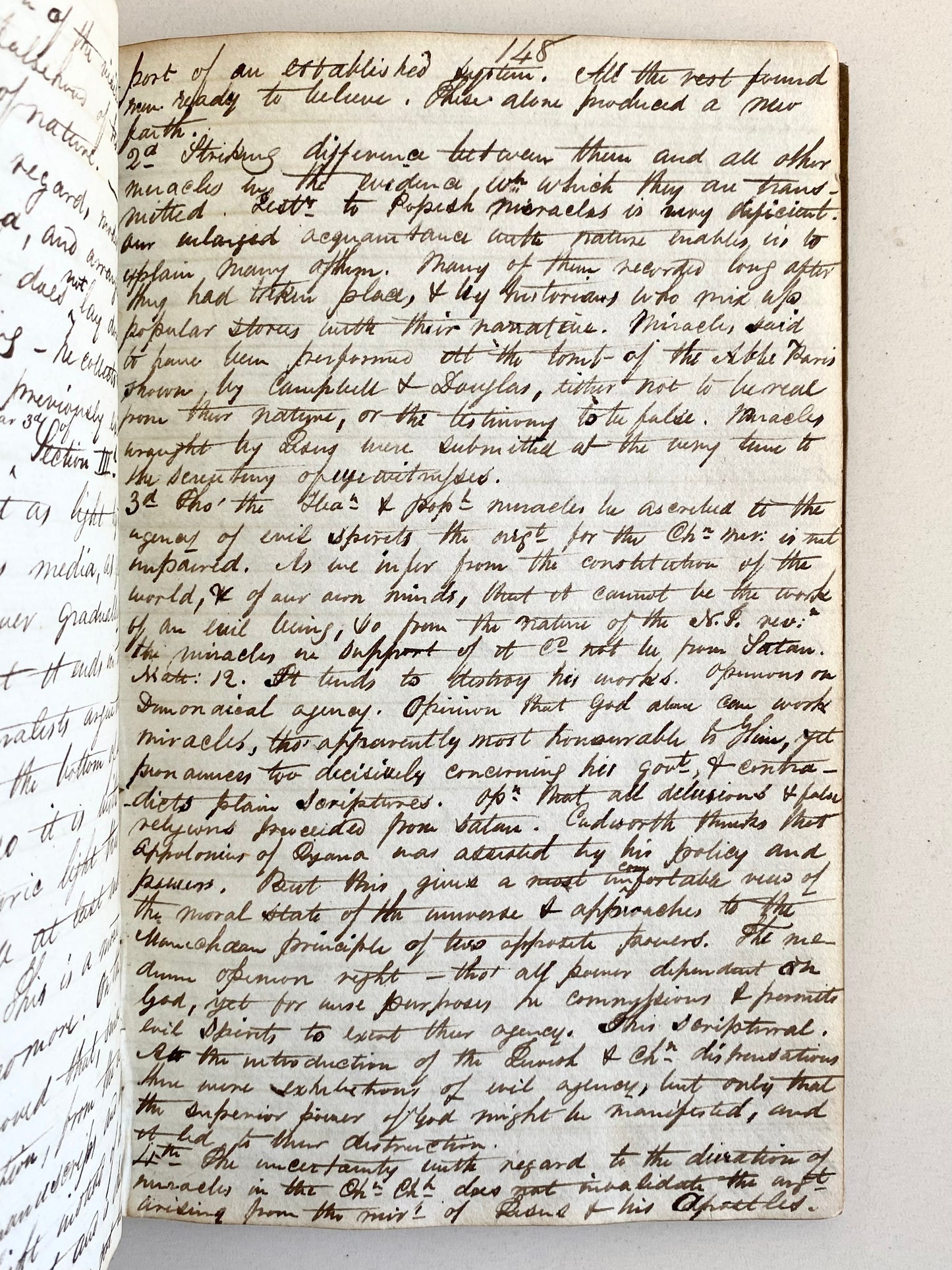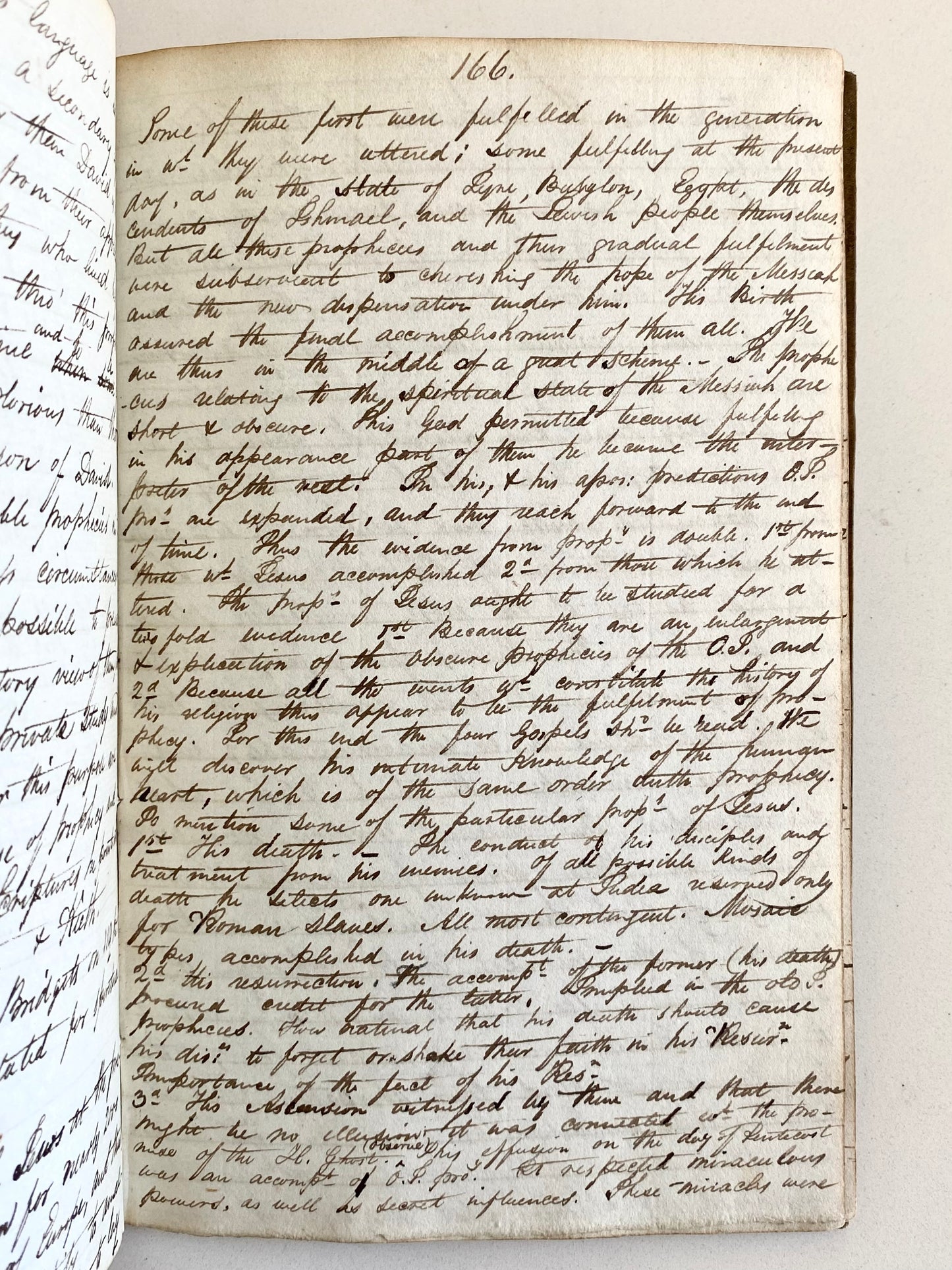Specs Fine Books
1829 THOMAS CHALMERS &c. 1,010pp Manuscript Sermons, Lectures, etc., by Scottish Presbyterian Disruption Divine.
1829 THOMAS CHALMERS &c. 1,010pp Manuscript Sermons, Lectures, etc., by Scottish Presbyterian Disruption Divine.
Couldn't load pickup availability
Four original, unresearched and fresh to market manuscript volumes encompassing the entire ministry career of Scottish Disruption / Free Church divine, Rev. David Scott Ferguson.
Born in 1808, he attended Marischal College in Aberdeen from 1822-1826 and then proceeded to the University of St. Andrews and Edinburgh where he studied under Thomas Chalmers with classmates Robert Murray M'Cheyne, Andrew and Horatius Bonar, Edward Irving, etc., He was then licensed in the Presbytery of Brechin in 1831.
Like almost every young minister influenced by Thomas Chalmers, he sided with the Free Church at the Disruption of 1843 and from 1843 to his death in 1897 he continued a faithful minister to the Free Church at Strachan, about 15 miles west of Aberdeen. He had first been ordained there in 1836, before the Disruption. It appears his entire church sided with him and left the Church of Scotland.
Four volumes:
Volume 1. Titled, "A Compend of Paley's Evidences of Christianity with Remarks & Lectures by Thomas Chalmers D.D. Edinburgh, March 2d, 1829. 174pp.
The present volume is not excerpts from Paley, but rather, first, Chalmers' lectures on Paley, then moving to lectures beyond Paley such as "On Man's Instinctive belief in the constancy of Nature," [which forms the basis of a lecture by the same name published in Chalmers' works]; on Hume's scepticism; more on Paley; interaction with John McLeod Campbell [who was tried for unorthodoxy in 1829; he was found guilty of heresy and deprived of his church]; on Hume and miracles [which includes a tantalizing section on John McLeod Campbell; it was his teachings that led to the McDonald brothers speaking in tongues, which influenced Edward Irving, etc.]; this section covers the first 103pp.
The volume then moves to Thomas Chalmers' lectures on the Doctrines of Christianity, including an opening lecture on the importance of theology being accessible to the general population; he points to America as a more religiously tolerant environment and an example to Scotland and England; on the reception of Apocryphal books; on the canon of Scripture; on the Character of Jesus Christ; on the Miracles of Christ; on the relationship between experience and Scripture / doctrine; etc.,
Includes a handwritten subject index that includes Natural Theology; On the Term Reward; Science and Christianity should be Mutually Upheld; On Religious Education; Of Pulpit Preaching; On Prophecy; etc.
Volume 2. Titled "Notes and Sketches. Begun January 1847 and Continued January 1884. 154pp.
An extensive assemblage of extracts, original outlines and thoughts, accounts of addresses and sermons heard, etc., for preaching and in preparation for the pulpit and perhaps the press.
Includes extensive content related to Temprance, Snuff and Tobacco; India and Missions; Mr. Grandrod's Temperance Labours; American Slavery; Glasgow Intemperance; The Progress of Popery; The Irish Home Mission; Popery the Nurse of Poverty & Crime; Temperance Facts and Statistics; Crime and Criminals; The Deaf & Dumb; Notes of a Speach on Intemperance in 1845; The Cost of the Poor Law for Scotland; The Increase of Drunkenness in Scotland; London Gin Palaces; Scripture Authority for Total Abstinence; Crime in 1840; Pathology of Drunkenness; The Millennium; The Elder; The Atheism of Tyndal; The Cholera of 1849; Christ's Second Coming; God's Moral Government; Prisoners in Scotland in 1862; The Covenant of Works & Grace; Signs of the Last Times; etc.
Volume 3. Titled "Visits to Families 1851 to 1881." 161pp + 166pp.
Perhaps the most fascinating of all, an extensive catalogue cover 30 years of ministry, intentionally visiting all his local families, and including addresses he has prepared to deliver in those homes. I am not aware of the existence of another volume like this; a true pastor of the time, quite literally preaching sermons in a family's gathering room, from house to house, day after day.
Includes addresses such as: Heads of Exhortation on the Obligation and Observance of the Sabbath - 11th Visitation; Heads of Exhoration on Family Religion - 12th Visitation; Addresses on the Holy Spirit; On the Interior Life of the Christian; On Home Religion; On the Moral Law; etc., Plus Notes Related to Each Visit, Spiritual States, etc.,
A fascinating and challenging insight into 19th century rural pastoral practice. Plus, a whole host of excellent, unpublished sermons for the family.
Volume 4. Titled "No IV. I Sermon Materials and Statistics, &c. II. Extracts from Authors. Begun in 1876. 355pp.
Again, extensive content, some extracted, some original, some reported from addresses or sermons heard. Nicely indexed in the rear.
Includes material related to American Churches; Popery and the Church of England; Inspiration; Conditional Immortality; Nature of the Sinai Covenant; The Famine in India; Notes on Dr. Candlish's Pamphlet on New Views; Ground of My Belief and Views of Smithism; Difficulties of the Conversion of the Jews; Notes for a Sermon on Temperance; Professor Smiths View of Inspiration; Notes on Disestablishment; Second Decision in Dr. Smith's Case; Notes for Discourses; Dr. Watts of Belfast on Apologetics and Inspiration; Penitential Psalms; Standards on Future Punishment; John Knox on His Universities; The Pantheist and Atheist Creed; Discoveries of Science in the Present Century; Opinion Regarding the Future State; Notes for a Sermon on II Corinthians 1.4; Notes for a Sermon to Young Men; Notes for a Sermon on the Holy Spirit's Work; Revd D. Macrae on Unquenchable Fire in Mark; Notes for an Address to Seamen; Dr. M'Cosh of Princeton on Broad-Churchism; Trial for the Ministry in 1596; Christ's Terms of Discipleship; Notes of a Sermon on Hell by Rev. David MacRae; Drs Chalmers and Candlish on Disestablishment; etc. etc.
*Extensive content on the heresy trial of William Robertson Smith, professor at the Edinburgh Free Church College.
All told, just over 1,000 pages in very good, legible condition as shown. A superbly preserved group of manuscripts worthy of preservation and research.
Share
